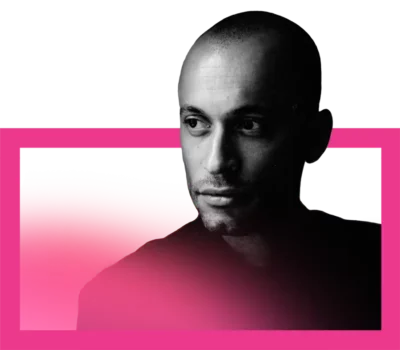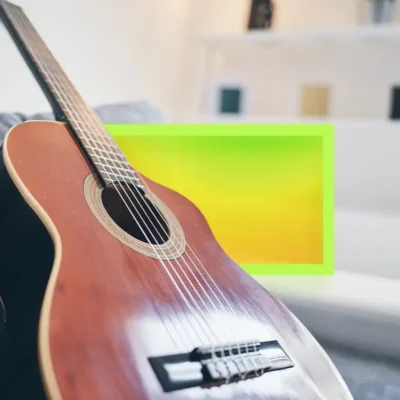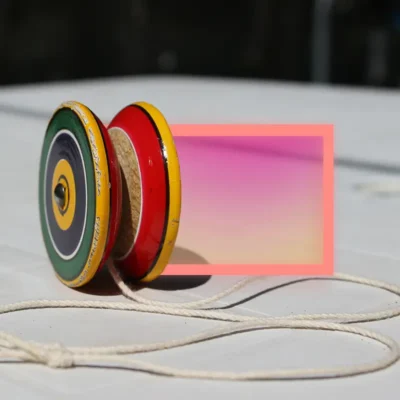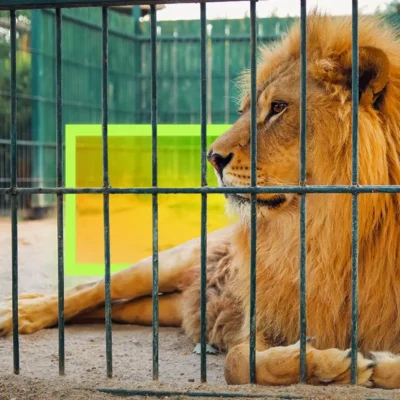When words fail
American cultural critic Thomas Chatterton Williams is deeply in love with his French wife, Valentine. Accustomed to exquisite command over the English language, Thomas loses agency over his life when he and Valentine move to Paris. And when they welcome their first child, Marlow, for the first time in his life he finds he can’t disclose himself — not fully — to a person he loves through language. When words fail, it’s his six-year-old daughter who builds the bridge to her father and helps expand his own sense of self — in language, in life, and in love.


Table of Contents:
Transcript:
When words fail
THOMAS CHATTERTON WILLIAMS: Her ease with the language seems like fluency to me. My French, on the other hand, is more rudimentary, unimaginative and uninspired, even though I’ve studied the language since grade school. My relationship with Valentine – though enriched and inflected by French words and phrases – is only possible as a result of her facility for English.
In New York, I am the one to set up our internet, deal with the landlord, and the immigration attorney. I write the checks and know all the doctors. But in our new life in Paris, I am immediately my wife’s dependent. From time to time, it feels, paradoxically, that I am somehow growing younger.
ROHAN GUNATILLAKE: Thomas Chatterton Williams is a writer and critic who explores in his memoir, Self Portrait in Black and White, the experience of being biracial. I’ve only recently discovered Thomas and I’m so glad I did. As a father of two young children who have very different skin tones to my own, his writing about the limitations of narrowly defining ourselves as black or white really connects with me.
The Meditative Story that Thomas shares with us today comes from a different place but is just as vital. It’s a story about another aspect of identity, it’s about language, how language can be like a line between things, a thing that divides and unites at the same time.
In this series, we combine immersive first-person stories, breathtaking music, and mindfulness prompts so that we may see our lives reflected back to us in other people’s stories. And that can lead to improvements in our own inner lives.
From WaitWhat, this is Meditative Story. I’m Rohan, and I’ll be your guide.
The body relaxed. The body breathing. Your senses open. Your mind open. Meeting the world.
CHATTERTON WILLIAMS: When I think back to my childhood, there is an image I return to again and again. Pappy’s seated in his leather swivel chair in the living room, that he’s made into his library. Shafts of sunlight poke through the blinds, catching flecks of dust. The faintest scent of pencil shavings lingers in the air. On his large mahogany desk, towering up above his head on either side, are mounds of books as thick as ramparts. A wide variety of philosophy, political science, sociology, poetry, and fiction. Behind him is the wall of shelves, stacked floor to ceiling. There are no screens and he never learns to use a smartphone or computer. He’s ensconced in his fortress. In front of him are journals and books and papers that he’s reading and underlining. He puts them aside to stand and greet me.
My father is a black man from the segregated South, old enough to be my grandfather. He never knows his own father and creates himself completely from scratch, out of language. He tells me a story about stumbling upon a neighbor’s yard sale when he was six. There is a book that catches my father’s eye. The man sees him staring at the beat-up paperback and just gives it to him. The book is a collection of Plato’s dialogues. My father takes it home and tries to read it. He can’t grasp most of what is inside, but what he does grasp is that it matters. It is a universal language that cuts across race, geography, and class, and links a small, fatherless black boy in rural Texas with a monumental philosopher in ancient Greece.
From that moment, my father decides to get his hands on as many other books as possible, drinking up what’s inside them. His family doesn’t encourage this. In fact, they actively oppose his intellectual ambitions, warning that it is dangerous for a black boy to “get up above himself.” They try to prevent him from reading. And so he slips into the closet with a flashlight and his books.
Pappy names me after an eighteenth century English poet, which encourages me – not so subtly – to think of myself as someone for whom words are of the utmost importance.
My mother is white, the daughter of Evangelical Christians from San Diego. My parents marry three years after the 1967 Loving vs. Virginia verdict. The ruling invalidates “racial integrity” laws, legalizing mixed race marriages for the first time. My parents face enormous outside pressure on their relationship. My mother’s Baptist minister father, Arthur, never acclimates himself to the reality of his daughter’s decision. My parents move further and further away from California – and his scrutiny – and forge a private language of acceptance and mutual understanding that always sustains them. Sometimes my father jokes, “My wife isn’t white, she’s just light-skinned,” because she demonstrates significant black consciousness. This always amuses my mother. On romantic matters, my father only ever tells me to live by the beat of my own drum.
My wife, Valentine, and I fall in love instantaneously. We find ourselves sipping cold beers on a rooftop in Brooklyn on a humid night in August. We’re staring at the electric jigsaw of Manhattan against the 2 a.m. sky, marveling at our good fortune to have met each other. She smells like Chanel and cigarettes and smiles giddily, thrilled to be in New York from Paris. Before I consciously understand what I’m doing, I’m kneeling and proposing, without a ring or a plan. This isn’t something I ever imagined I’d do. I’m not even 30 years old. And I’m suddenly getting married. To a white woman. Until this very moment I believed I would put off settling down for many more years, and that when I did, my wife would be black like me.
We fall asleep that night elated. In the morning, I wake up pinned to the mattress, staring at the ceiling fan twirling in circles. Valentine shifts to me and smiles bravely. Perhaps she senses my anxiety; perhaps she simply feels I might not have meant what I’d said the night before and that I was drunk off more than just love. “You know you don’t have to go through with this,” she whispers. “You have the right to change your mind.”
It suddenly occurs to me that I’ve never even met her family. My mind turns to the kind of racial divisions and challenges that mark my parents’ history. I decide it doesn’t matter. I’ll marry this woman I want to marry.
GUNATILLAKE: Imagine being with Thomas and Valentine in this moment. It is a moment full of intimacy, reflection, and commitment. How does it make you feel? Is there anything that comes up for you? Give it a name, whatever it is.
CHATTERTON WILLIAMS: Valentine and I spend our first year together in that apartment in Brooklyn. I’m working on a novel. I support us both on the dwindling remains of the advance I’d received for my previous memoir. When she’s offered a full-time job at a magazine back in Paris, it seems irresponsible not to take it – plus I’ve always wanted to live in the French capital.
Perhaps oddly, in both the U.S. and France, racial challenges never surface. My wife comes from a family of Anglophiles on her father’s side. Her mother is French but her passport lists her birthplace as Saigon. She is partially educated in England. Valentine herself has never lived abroad before moving in with me. Her own English is derived from childhood trips to visit her grandparents in Ireland, and American movies and pop music. Her ease with the language seems like fluency to me.
My French, on the other hand, is more rudimentary, unimaginative and uninspired, even though I’ve studied the language since grade school. My relationship with Valentine – though enriched and inflected by French words and phrases – is only possible as a result of her facility for English.
In New York, I am the one to set up our internet, deal with the landlord, and the immigration attorney. I write the checks and know all the doctors. But in our new life in Paris, I am immediately my wife’s dependant. She accompanies me to the bank to set up my checking account and she must find and contact my doctors just as she must find our apartment and persuade her father to guarantee it. From time to time, it feels, paradoxically, that I am somehow growing younger. I park myself in our dining room reading and writing in English, hardly practicing French conjugations outside of transactional situations. My seventh-grade memories of the language are deemed proficient for the mandatory orientation course when I apply for my visa.
Two years later, when our daughter Marlow is born, I understand enough to know that the doctor is calling out that she can see a tete dorée or golden head. These words slap me to attention. Marlow’s blond hair, blue eyes, and pale ivory skin aren’t ambiguous at all – she looks white to me. And her birth forces me to question what, exactly, I will transmit of myself, and of the people and social context that shape me, to my children.
Very early on, Marlow displays an impressive command of her mother tongue coupled with a pointed lack of interest in English. Though all the multilingual parenting books I’ve come across warn against this, I speak to her in an undisciplined and confusing “Franglais.” As she gets older and more sophisticated, she gently corrects my errors, but most of the time she simply intuits what I’m saying. For the first time in my life, I can’t disclose myself – not fully – to a person I love through language. Most of the time, this isn’t a big problem. Children need hugs and smiles and meals and clean diapers far more than they need elaborate sentences.
But story time is different. After the bath and dinner are finished, and before I uncork a bottle of wine with Valentine, I’m faced with a chore that I’d always imagined I would relish. I climb into bed with Marlow, into her cozy little cubby of piles of stuffed animals and glow-in-the-dark starry night decals stuck to the low ceiling above her. I scan the shelf behind her pillows for something I can handle. The miraculous act of creating shared meaning from letters on a piece of paper – something that has always been a source of strength and even safety for me – now feels like a trap.
I fumble my way through French books. Marlow immediately loses interest in the English ones, even, to my amazement, my own childhood favorite, Harold and the Purple Crayon. My mother recently found it in our attic and rushed to the post office to send to Marlow. I power through and as she falls asleep I can’t help but think how odd it is that during the day I make my living finding the language to assemble my own books. Does my daughter understand this? Can she appreciate that somewhere else I am not so inarticulate? Or will she only ever see me as clumsy, someone for whom even the most basic phrasing presents an obstacle?
The Polish poet Czeslaw Milosz said that “Language is the only homeland.” Valentine and I make our life together on the outskirts of mine. In Paris, I create a bubble of English in which she selflessly joins me. This is the unspoken compromise of our marriage. Outside of our house, the entire country is hers. Most of the time this seems more than sufficient. But when words fail, the impact can be devastating.
We’re driving from the train station in Avignon to Valentine’s uncle’s farmhouse. She’s driving – I don’t have the right to, since I foolishly forget to renew my license. It’s a gorgeous, sun-soaked Provençal afternoon, and the pine- and lavender-scented air breezes through the windows. I choose a mostly lyricless jazz station we both agree on. My eyes dart to my smartphone where I pull up Google Maps, belting out directions. When the river Rhone flows by for a second time, I realize that Valentine has doubled back. This exasperates me.
We begin to argue. That’s not exceptional. The dispute is a four or a five on a scale of ten. She says that I have a different tolerance for conflict. It’s something I acquired in that household I was raised in, a household where I had to fight a contrarian older brother and a strong-willed father who was a masterful wordsmith. This is not the kind of household Valentine comes from. She thinks these conflicts were a kind of violence I had to contend with, but I don’t see it that way. I see these disputes as a kind of care, a genuine interest in what the other person is saying, as well as a mutual strengthening and preparation for the challenges of the wider world. In my common language with my parents and brother, no one could grow too content that they would always have the upper hand. Underneath it all, there was a kind of safety and comfort in just letting our words fly and letting our feelings be heard.
This isn’t Valentine’s manner. She’s more acquainted with the tentative truce of wounded silence. She intuits there are points beyond which one simply doesn’t speak. Why won’t she listen to what I’m so clearly telling her? Slow down, merge right here. What do you mean what does merge mean? You missed it again! I don’t see it coming when she cracks, when our difference in language compels her, if only momentarily, to lose her grip on reality.
Suddenly, she slams her foot on the break in the middle of flowing traffic. She screams Arête! in French, not “Stop!” in English. The back window of the little rental car explodes onto my lap. My neck whips forward and then immediately back.
I realize something is terribly wrong. I’m in physical pain – and also shock. We’ve been hit from behind. Valentine looks around dizzily. She moves to me, reaching out for my face. She’s desperate to be assured that I’m okay. In that moment of tenderness I glimpse how much she loves me. She doesn’t have to say a thing, and for a moment the world recedes and we gather ourselves in silence.
GUNATILLAKE: Certain moments open up the possibility of connecting in profoundly deeper ways without words. Take a moment to create an image of connecting with someone you love through sight or touch, nothing more.
CHATTERTON WILLIAMS: The truth is that we are fine, all things considered. The insurance will pay for the car, our necks will stop being sore, and the family who hit us, mercifully, isn’t injured. They even apologize, which embarrasses me. They have no idea what caused the collision. By the time the taxi delivers us to Valentine’s uncle’s, we’re actually able to laugh, feeling easier in each other’s company than it seems we’ve been for ages.
What happens that day is like the lancing of a boil; we are the better for it. But what lingers is the knowledge that when we don’t have the fluency of language to bind us there is a limit to endurance, a limit to reason.
Most of the time I am at ease in my portable homeland, in this bubble I move through France in. And yet this is not the case when dealing with children. It is only then that I am able to feel a fury like what I imagine my wife felt in that car, a fury that comes from the inability to articulate, to not simply be heard, but to make oneself be understood.
Valentine and I rent a stone house overlooking a vineyard in the South after our son Saul is born. It’s the summer vacation and a slew of friends and family come to visit. I’m struggling to find ice in the storage room where my daughter is playing with a seven-year-old, the son of Valentine’s friend. I address Marlow. The boy looks at her and says “Well, your father, he understands nothing.” The blood rushes to my face. I study Marlow’s face for that terrifying look of embarrassment as I am standing there, stuttering, powerless to stop it.
That same terror overcomes me again the following August in Italy. We rent a house with Valentine’s sister and Marlow’s cousins. The backyard descends directly into the Mediterranean. Sicily is visible in the distance. I am drying off in my bedroom, dressing for dinner. It has been a long day, driving around the Calabrian countryside with two cars full of children. I have 15 minutes to decompress before heading down to help make dinner. Saul is in his cot. He is finally sleeping. I am lost in my thoughts when my six-year-old niece barges through the door with Marlow and defies me when I ask them to leave. “Do not disturb the baby,” I sputter.
As I try to fulfill my most basic function as an adult, in front of my daughter, words fail me, again. The verbs are not conjugating. The gears shifting me from my own thoughts into French need greasing. They get stuck and I go silent. My niece stares at me. Parenting and uncling in French have linguistically undermined my authority. It’s the second to last day of the vacation and I vent my frustration to my wife, who does not take it well.
Back in Paris, Marlow comes to me in our still-silent apartment, climbs on top of my chest as I lay on the couch, and announces, to my amazement, that she will from now on be speaking to me in English. Without further preamble, she reveals herself to be fluent – she has been holding so much inside her, so much I didn’t even know was there. I grasp immediately that this will always be one of the most sincere and meaningful acts of love and generosity anyone has ever given me. She and her brother and mother continue on the next day to Valentine’s father’s house and I hang back in Paris, and for the first time in our six-year relationship, Marlow calls me on the phone daily and we speak to each other completely in English. I wonder if this is a fluke, but when she comes home, it continues. She divides her time now, spending part of each day in my homeland.
Until my daughter finds the strength to create this two-way bridge for us to meet each other, I don’t realize the extent to which our dialogue has been unidirectional. Once she begins to speak freely, though, it strikes me that she does know much more about me and my world than I had allowed myself to know of hers. Real communication requires people to get out of their default comfort zones, and to meet a person where they are. My daughter chooses to do this to create a bridge between us.
In so many ways, it’s become clear to me that up til now I’ve tacitly negotiated with my family a comfortable enough, half-way stay in France. I keep one foot in and one foot, always ready to slip out. I’ve resisted making myself capable of full expression in French for years. Marlow’s efforts unlock something in me. This is more than a desire to master a foreign language for its own sake. She’s loosened a desire in me to reach out to her in kind, and to her brother and her mother, too – not just to passively observe but to meet them where they live, without translation. And in doing so to leave behind this notion that I, or any of us for that matter, am just one thing – American, black, white, or whatever one-dimensional framework I still struggle to let go of.
It occurs to me at last that by expanding my own sense of self – in language, in life, and in love – I might just finally, truly get home.
Rohan’s closing meditation
GUNATILLAKE: Listening to Thomas’s story about language and its power to isolate – and also to connect – makes me think a lot of things. And one of the things it makes me think is how inaccessible much of the language in the world of meditation can be.
A big part of our mission here at Meditative Story is to use beautifully told and engaging stories as a gateway into meditation for newcomers, and for those with a bit of a background, to present a different way to practice.
And a big part of that is the words that we use. But that is not universally true in the world of meditation, because for all the progress mindfulness has made in our culture, it can still use confusing language. But our intention here is one of directness and clarity. So inspired by Thomas, please join me in a practice where the language is as simple yet direct as possible.
If you’re moving as you listen to this, knowing that you’re moving, aware of the sensations in your body that let you know that you are moving. If you’re still as you listen to this, know that you are still, no need to complicate things. Breathe and know that you are breathing.
Letting the language of these instructions point you to direct experience. And letting your attention settle on the breath wherever you are most aware of it. And when you notice that your mind has wandered away from the sensations of the breath, just come back. Breathe, and know that you are breathing. And when your attention drifts away, as it’s probably well trained to do, aware of that too and coming back. Again and again, over and over.
Not letting language get in the way of your ability to be here. Using language to point us to what is happening and letting it connect us with what really matters, just as Thomas did.
Thank you.





